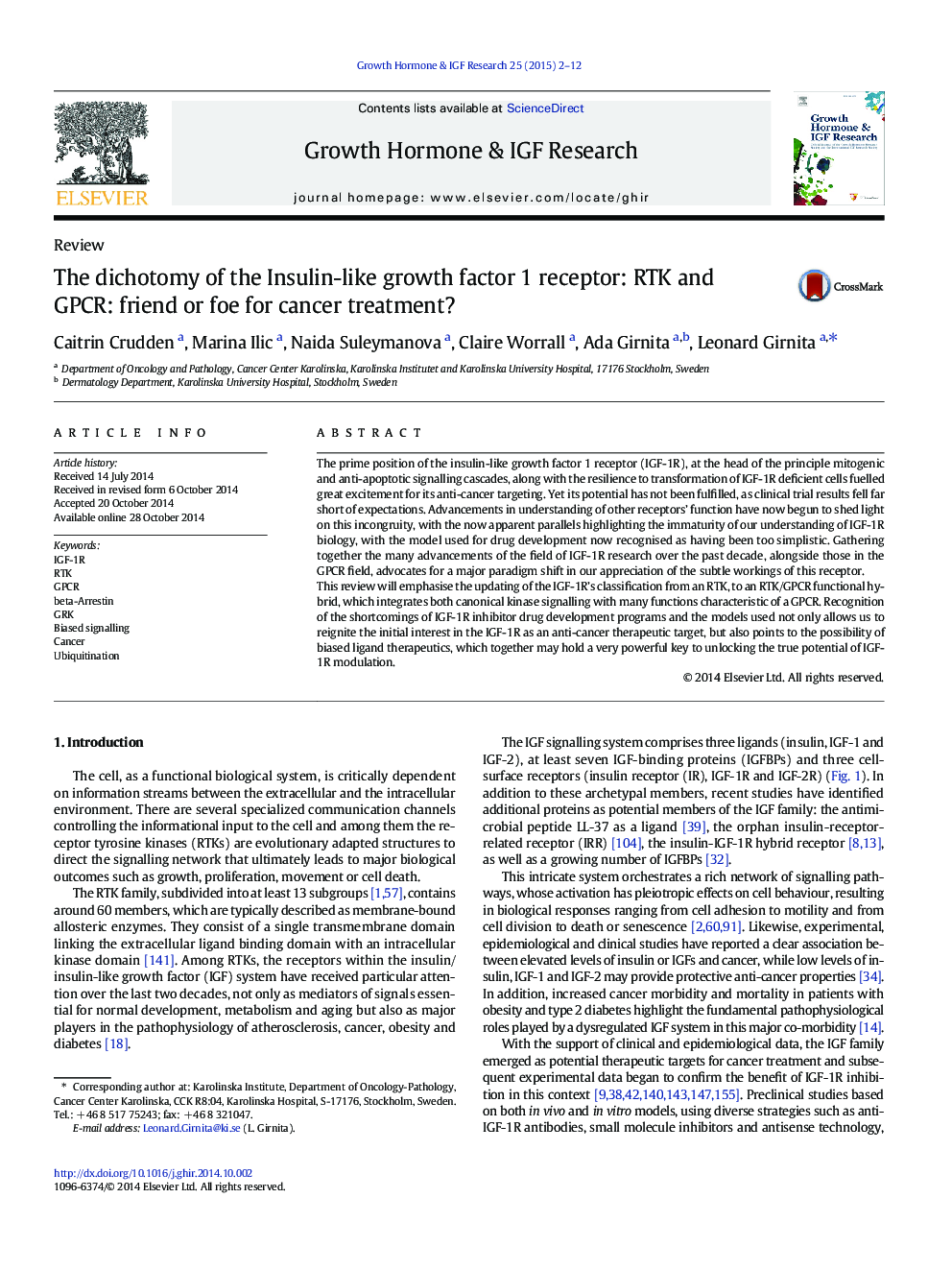| Article ID | Journal | Published Year | Pages | File Type |
|---|---|---|---|---|
| 5901809 | Growth Hormone & IGF Research | 2015 | 11 Pages |
â¢IGF-1R's potential in anti-cancer targeting has not been fulfilled.â¢The IGF-1R model used for drug development may have been too simplistic.â¢The IGF-1R's classification needs updating from an RTK to an RTK/GPCR functional hybrid, in line with recent developments.â¢This review recognizes IGF-1R as a therapeutic target for cancer and indicates biased agonists as an alternative strategy.
The prime position of the insulin-like growth factor 1 receptor (IGF-1R), at the head of the principle mitogenic and anti-apoptotic signalling cascades, along with the resilience to transformation of IGF-1R deficient cells fuelled great excitement for its anti-cancer targeting. Yet its potential has not been fulfilled, as clinical trial results fell far short of expectations. Advancements in understanding of other receptors' function have now begun to shed light on this incongruity, with the now apparent parallels highlighting the immaturity of our understanding of IGF-1R biology, with the model used for drug development now recognised as having been too simplistic. Gathering together the many advancements of the field of IGF-1R research over the past decade, alongside those in the GPCR field, advocates for a major paradigm shift in our appreciation of the subtle workings of this receptor.This review will emphasise the updating of the IGF-1R's classification from an RTK, to an RTK/GPCR functional hybrid, which integrates both canonical kinase signalling with many functions characteristic of a GPCR. Recognition of the shortcomings of IGF-1R inhibitor drug development programs and the models used not only allows us to reignite the initial interest in the IGF-1R as an anti-cancer therapeutic target, but also points to the possibility of biased ligand therapeutics, which together may hold a very powerful key to unlocking the true potential of IGF-1R modulation.
